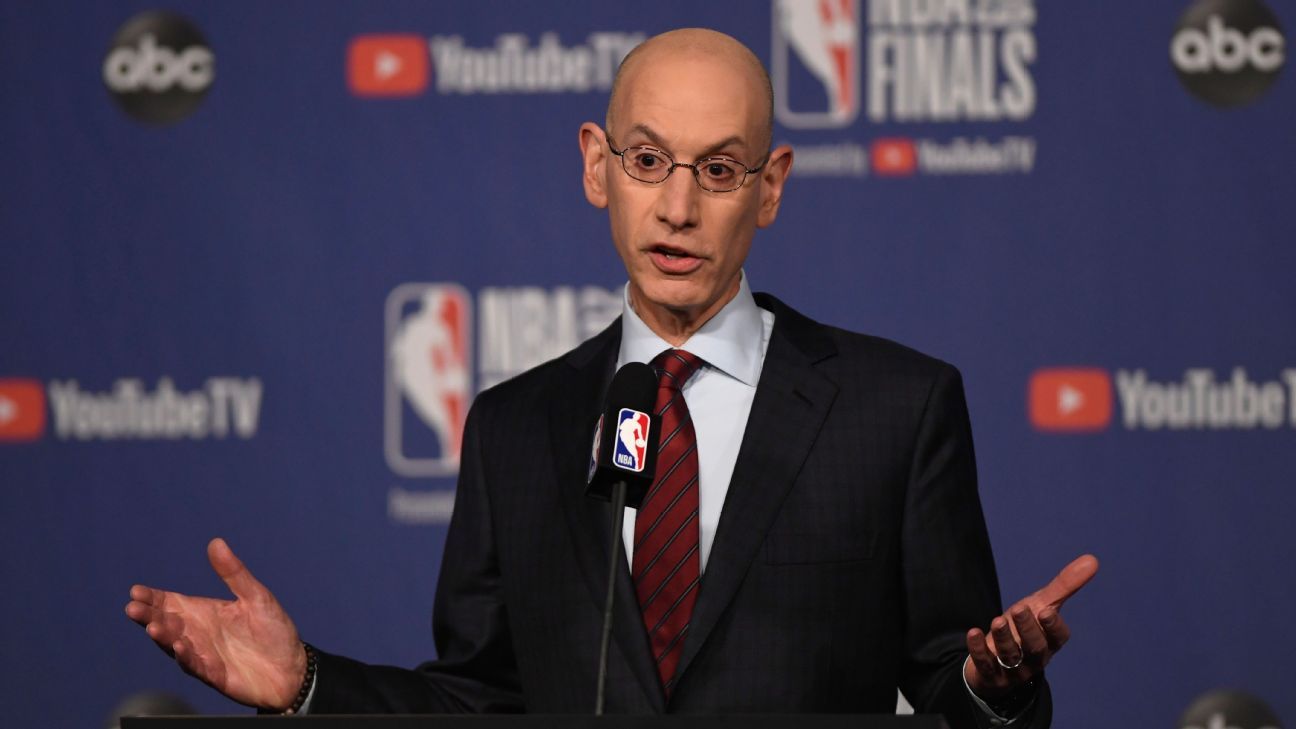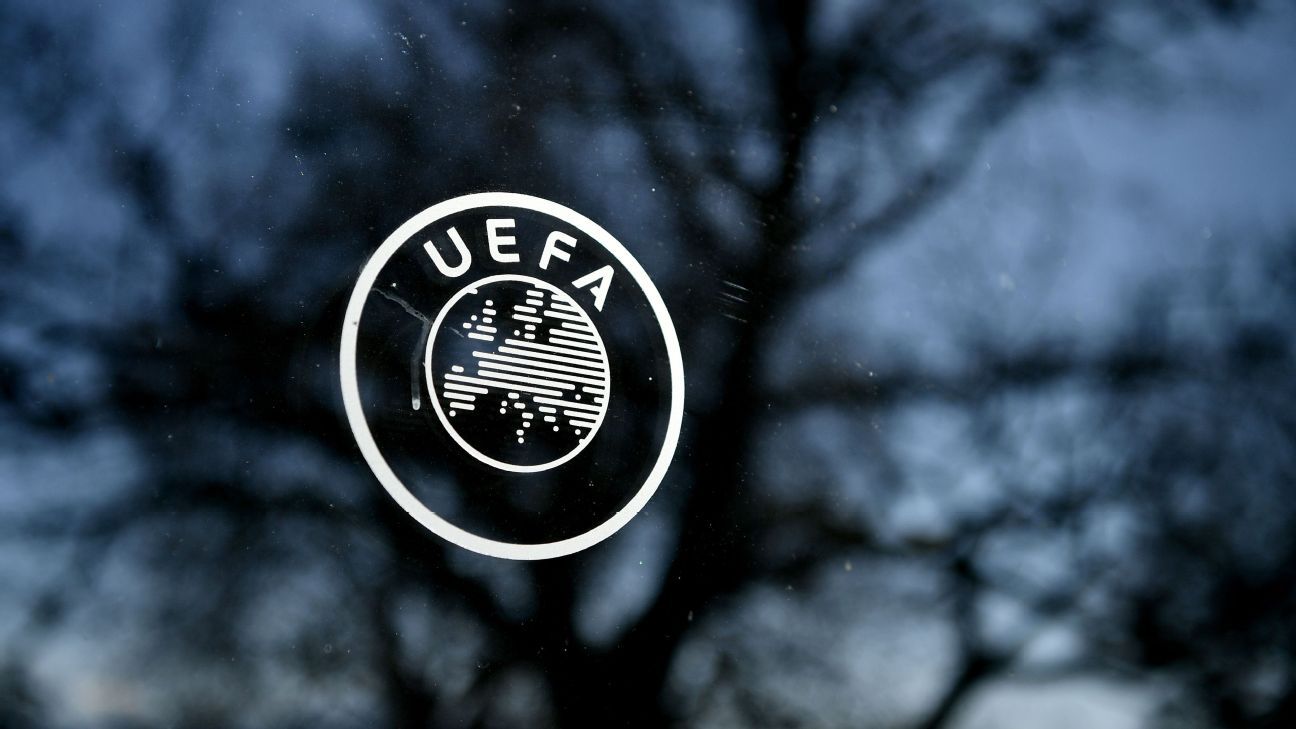
NEW YORK -- The NBA's Board of Governors on Friday unanimously approved a series of measures to more strictly enforce compliance with tampering and salary-cap circumvention.
In addition to being subject to fines up to $10 million, teams can also lose draft picks, executives can be suspended and contracts can be voided when rules are not followed. In addition, teams must save communications with agents for one year and random auditing of a team's communication with agents and other teams can take place.
"We had, I think, a very healthy discussion on those issues," NBA commissioner Adam Silver said of the changes in a news conference after the league's meetings had concluded. "Certainly the provisions passed unanimously, and there was a strong view I think of every single person in the room that we need to ensure that we're creating a culture of compliance in this league and that our teams want to know that they're competing on a level playing field, and frankly don't want to feel disadvantaged if they are adhering to our existing rules.
"The ultimate goal here is to ensure compliance and to ensure that there's that appropriate tension that exists at the team. So there is sort of a significant threat that if a team doesn't comply, that there will be consequences."
Both tampering and the potential for salary-cap circumvention gained steam this summer, after a series of deals appeared to be agreed upon before free agency officially began at 6:01 p.m. ET on June 30 -- and after Kawhi Leonard's high-profile free agency resulted in both he and Paul George winding up with the LA Clippers.
As a result, Silver and the league entered this week's meetings with a series of things the NBA wanted to implement to create stricter consequences going forward.
Among them:
* The annual, random auditing of five teams' communications with rival front offices and player agents, along with the league having the mandate that it can "undertake more in-depth investigations ... where cause exists";
* Increasing the maximum fine amount to $10 million;
* Top team officials are required to save communications with agents for one year
Those items are now officially league rules after the Board of Governors' unanimous approval Friday afternoon -- easily clearing the 75% majority vote (23 out of the 30 NBA teams) needed to enact them.
One of the biggest areas of concern for team officials centers around privacy concerns stemming from the league's ability to seize communications devices.
While that is something that the league could already do -- such as when it investigated the Brooklyn Nets (and ultimately cleared them of wrongdoing) over the signing Andrei Kirilenko in the summer of 2013 -- Silver acknowledged those fears in his opening statement announcing the changes.
"I'm sure you've heard some of the chatter around these rules," Silver said. "As I said, I understand it, that none of us want people looking into our private affairs. I think part of the discussion, of course, went to what the scope of any investigation should be. I am not interested in looking in any aspects of people's life outside of what is relevant to the operation of their teams, unless of course there is an issue that requires that we look into something outside the scope of what we're addressing here."
Still, when Silver was asked directly about how he and the rest of the league office addressed those concerns, he notably left the door open to pursue them.
"Well, I'm not sure I allayed everyone's concerns, but I will say it's my job to create an appropriate amount of tension in that area," Silver said. "Obviously, if people felt that they were absolutely free and clear to communicate in certain ways, you wouldn't be addressing the consequences notion of improper activity.
"Again, I understand it. As I was saying from the other standpoint, none of us want people looking into their personal communications. But I think people who operate in a public company environment, who operate in a financial world, who are used to compliance procedures, understand that you have to find the right balance of disclosure and privacy so that you can ensure that people of goodwill will understand that there will be consequences to inappropriate behavior."
Meanwhile, as far as how the mechanics of the random auditing of the five teams will take place, Silver said more work still needs to be done to iron out the details.
"There's not much more I can share with you at this point, and not because I'm withholding information from you," Silver said. "We listened to our teams. We heard their concerns. We said we would go back and, in essence, come up with a framework in which we would discuss with our teams before we implemented it and recognize the balance, again, of their privacy concerns with our need to ensure compliance.
"At some point there will be more information available, but the league has additional work to do in that area before we, in essence, promulgate the specific rules around compliance."
The measures were part of several changes approved by the board:
TRAVELING: The league also issued a statement announcing it had clarified the language governing how it makes traveling calls.
The new language provides a formal definition of a player "gathering" his dribble -- something that has been part of how referees determine traveling calls for some time, but has never been actually spelled out in the rules. Now, it is.
"One of the most misunderstood rules in our game is how traveling is interpreted and appropriately called," NBA President of League Operations Byron Spruell said in the statement. "Revising the language of certain areas of the rule is part of our three-pronged approach to address the uncertainty around traveling."
ANNOUNCING LINEUPS EARLIER: Teams must now make official their starting lineups 30 minutes before tipoff, as opposed to 10. The move was made "to increase transparency for teams, media and fans," according to the statement.
It also stands to reason that, as sports gambling grows more and more prevalent, the additional clarity would be a benefit to gamblers, as well.
Teams will still have the ability to change their starting lineup after the 30-minute deadline if "circumstances change" -- typically if a player was to sustain or exacerbate an injury during pregame warmups.















 Phone: (800) 737. 6040
Phone: (800) 737. 6040 Fax: (800) 825 5558
Fax: (800) 825 5558 Website:
Website:  Email:
Email: 






